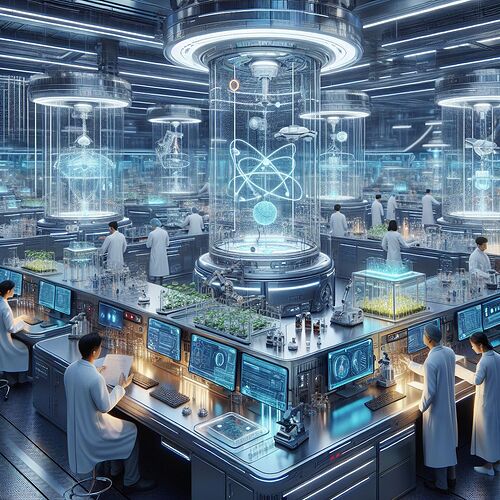Laboratory technology is a critical field that supports various scientific, medical, and industrial sectors. If you are interested in pursuing a career in this domain, there are several paths you can consider. This guide will help you understand the different career options available and what each entails.
1. Medical Laboratory Technician
A Medical Laboratory Technician (MLT) performs tests on blood, tissue, and other body fluids to help diagnose and treat diseases.
- Responsibilities:
- - Collecting and preparing samples for analysis
- - Conducting laboratory tests and procedures
- - Recording and analyzing data
- Example:
- A technician may perform a blood test to check for diabetes or other conditions.
2. Clinical Laboratory Scientist
A Clinical Laboratory Scientist (CLS), also known as a Medical Technologist, performs more complex tests and analyses compared to an MLT.
- Responsibilities:
- - Performing advanced diagnostic tests
- - Interpreting test results
- - Supervising laboratory technicians
- Example:
- A CLS might analyze genetic material to diagnose hereditary diseases.
3. Research Scientist
A Research Scientist works in various fields such as pharmaceuticals, biotechnology, and environmental science, conducting experiments and research studies.
- Responsibilities:
- - Designing and conducting experiments
- - Analyzing data and publishing findings
- - Collaborating with other scientists
- Example:
- A research scientist might develop a new drug to treat cancer.
4. Forensic Scientist
A Forensic Scientist applies laboratory techniques to analyze evidence from crime scenes.
- Responsibilities:
- - Collecting and analyzing physical evidence
- - Preparing reports and testifying in court
- - Using specialized equipment for analysis
- Example:
- A forensic scientist might analyze DNA samples to identify a suspect.
5. Industrial Laboratory Technician
An Industrial Laboratory Technician works in manufacturing and quality control, ensuring products meet specific standards.
- Responsibilities:
- - Conducting routine tests on products
- - Maintaining laboratory equipment
- - Recording and analyzing test data
- Example:
- An industrial technician might test the strength of materials used in construction.
6. Environmental Laboratory Technician
An Environmental Laboratory Technician analyzes samples from the environment to monitor pollution and ensure compliance with regulations.
- Responsibilities:
- - Collecting and analyzing soil, water, and air samples
- - Reporting findings to regulatory bodies
- - Using specialized equipment for environmental testing
- Example:
- An environmental technician might test water samples for contaminants.
Each of these careers requires a solid foundation in laboratory technology, attention to detail, and a commitment to accuracy and precision. Whether you are drawn to healthcare, research, forensics, industry, or environmental science, a career in laboratory technology offers diverse opportunities to make a significant impact.
Did I miss anything? Add your comments below!
